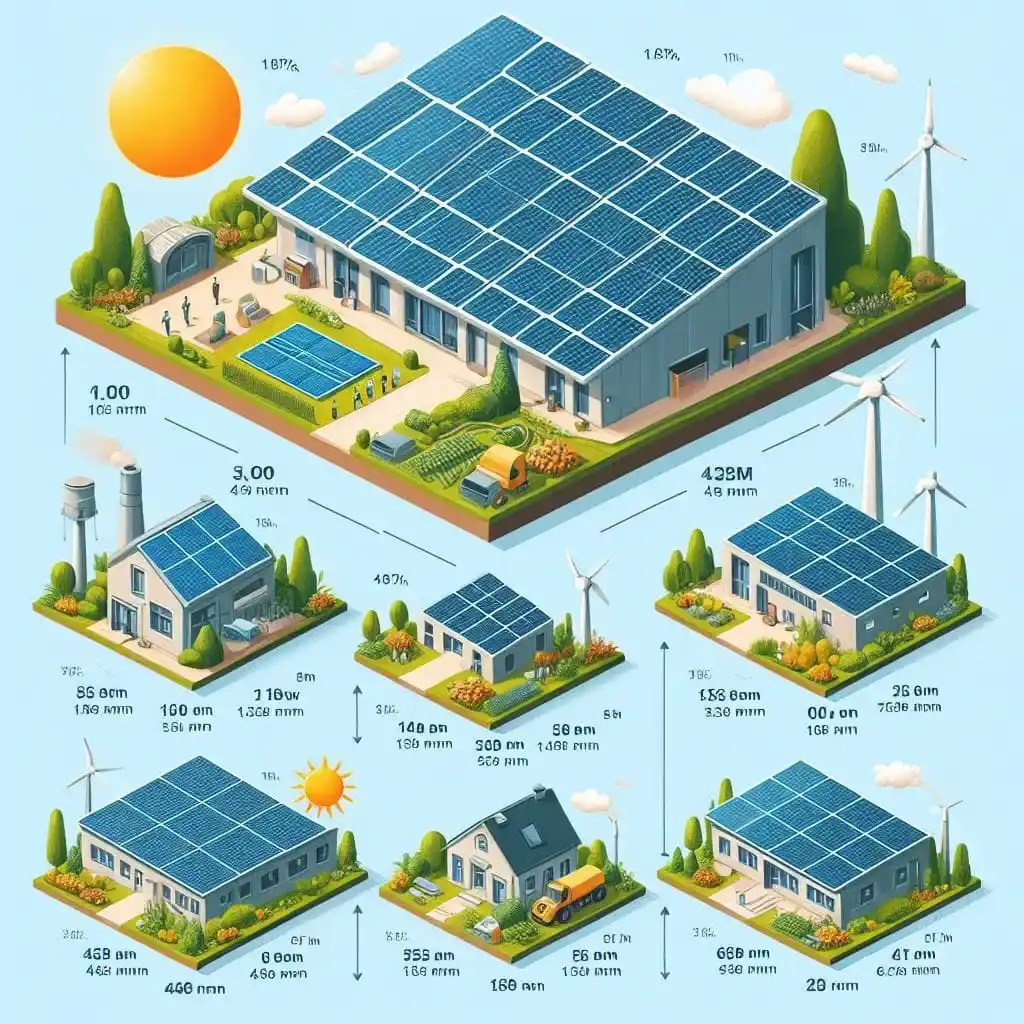Comparing Solar Panel Wattage Sizes for Optimal Energy Output

The decision to go solar is no longer just an environmental one. It’s also highly economical. Understanding how to compare and select the right solar panel wattage for your energy needs can save you thousands of dollars.
This is over the lifetime of your solar system. However, choosing the right option can be daunting.
In this guide, I’ll walk you through the key considerations when comparing solar panel wattage sizes, so you can make the most of your solar investment. Read on.
The Role of Solar Panel Wattage in Energy Production
When considering solar panels, wattage directly influences their power output. It’s the wattage that determines how much electricity the solar panel can produce under standard test conditions.
Higher wattage panels generally mean fewer panels are needed to meet your energy goals. This can be a significant factor in the overall cost of your system. However, higher wattage usually translates to higher costs for the panels themselves.
The Mathematics of Solar Panel Wattage
To grasp the significance of wattage, consider the simple equation of power (P) measured in watts, current (I) measured in amps, and voltage (V) measured in volts:
P = I * V
In a solar panel, current (I) is produced by the number of sunlight-captured electrons passed through a conductor. Voltage (V) refers to the potential of the enzyme. Enzyme means the pressure that forces the current.
By increasing the number of solar cells in a panel, you increase the current. By increasing the efficiency of the solar cells, you can increase the voltage.
The product of which is a higher wattage panel that converts more sunlight into electricity. This is very helpful for getting your total wattage.
Panel Efficiency and Energy Density
Efficiency is a measure of how well a solar panel converts sunlight into electricity. Traditional poly-crystalline and mono-crystalline panels generally offer efficiencies ranging from 14% to 22%.
This is with the most efficient models surpassing 23%. Thin-film solar panels tend to be less efficient, but their flexibility in installation and lower cost can be attractive for certain applications.
How Efficiency Affects Wattage Selection
When comparing panels, you must consider the trade-off between efficiency and cost. High-efficiency panels are more expensive, but they produce more power per unit area.
This can be crucial if you have limited space for installation. Energy density, which is the measure of the energy output per unit area, is also a factor of efficiency and can influence your decision.
Consult a solar energy expert to help in choosing the Solar energy wattage. Check out solar power installation services in Chicago to learn more about it.
Sizing Up the Space
You must assess the physical space available for your solar installation. This is before jumping into panel selection. Residential rooftops, for example, often have limited square footage.
The number of panels your space can accommodate will determine the overall wattage capacity of your system. If you’re limited by space and seek maximum output, then high-wattage panels may be your best option.
Consider Shading and Orientation
Even with a good amount of space, shading issues or an unideal roof orientation can affect the effectiveness of solar panels. Panels that operate partially shaded will see power production reduced across all cells.
This can mean a significant loss if shading is a frequent issue. In such cases, you might opt for micro-inverters or power optimizers to mitigate against partial shading effects.
Inverter Considerations
Solar panels generate direct current (DC) electricity. However, most homes use alternating current (AC).
Inverters convert DC electricity to AC. The type of inverter you install can affect your choice of solar panel wattage.
String Inverters vs. Micro-Inverters
String inverters are more cost-effective for larger systems with unshaded, consistent access to sunlight. However, a string inverter can be limited to the lowest-performing panel’s output. This means you may not get the full benefit of high-efficiency panels.
Micro-inverters are installed on each panel and can optimize the output of each panel. This can be beneficial for systems with shading issues.
Budget and Financial Incentives
Your budget is a key factor in selecting solar panel wattage. Higher-wattage panels can cost quite a bit more than lower-wattage ones. So it’s essential to balance your energy production goals with your financial limitations.
Cost-Per-Watt Analysis
When comparing panels, consider the cost-per-watt. It is the total cost of the panel divided by its power output.
This metric allows a direct comparison between panels. It helps you to assess which panel offers the best value.
Incentives and ROI
It’s also important to include any available financial incentives and rebates in the cost analysis. The return on your investment (ROI) will vary based on:
- Wattage
- Panel cost
- Local incentives
While higher-wattage panels may have a higher upfront cost, greater energy production can result in a shorter payback period. This can also increase savings over time.
System Longevity and Warranties
Solar panels are a long-term investment, typically lasting 25-30 years. When comparing wattages, you must also consider the longevity of panels and the protection offered.
Product and Performance Warranties
Most panels come with a product warranty covering manufacturing defects. They often have a performance warranty that guarantees a certain level of output over time.
Higher wattage panels tend to have higher performance warranties. It provides a safeguard against degradation.
Degradation Rates
Panels degrade over time, and the rate at which they do so varies. On average, panels might lose between 0.5% to 1% of their efficiency per year.
When comparing degradation rates, consider how they will affect your system’s output over its lifetime. Also, factor this into your decision.
Environmental Considerations
Going solar is primarily an environmental decision. The lifecycle of solar panels has its impact. So, choosing the right wattage can make a difference in their environmental footprint.
Manufacturing
The production of solar panels requires:
- Energy
- Water
- Raw materials
High-efficiency panels typically require more resources in their manufacturing. On the flip side, higher-wattage panels can generate more electricity for a given area. It potentially offsets their higher manufacturing impact.
Getting the Right Solar Panel Wattage Sizes
In conclusion, choosing the right solar panel wattage sizes is crucial for maximizing energy output. By considering the factors mentioned above, you can select the optimal wattage size for your system.
Don’t hesitate to consult a professional! Make the switch to solar today for a more sustainable and cost-effective energy solution. Take action now and start harnessing the power of the sun!
If you want to read more articles, visit our blog.






